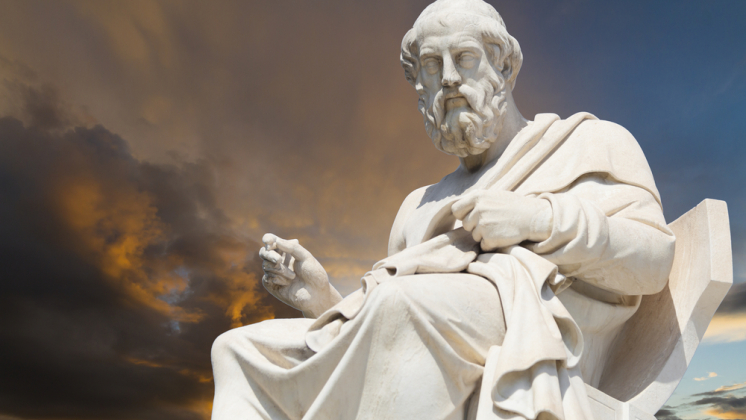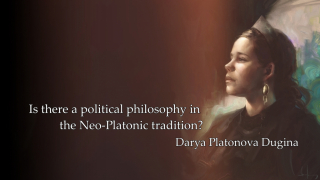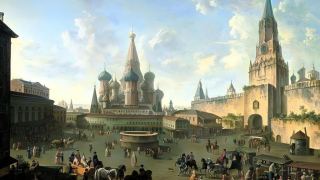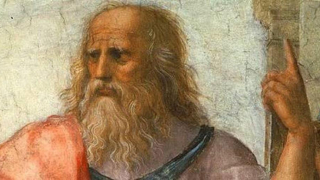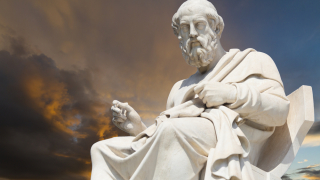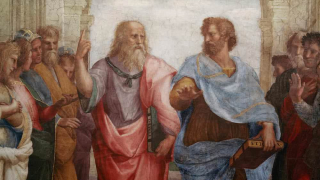Education in Political Platonism
Introductory Remarks
Good morning everyone, it’s great to be with you. As you know, El Salvador has captured the attention and imagination of people around the world because it offers living proof that it is never too late for a country to experience a renaissance, if only it has good, intelligent leadership at the top and a citizenry that still hopes for peace and prosperity, two pillars of good government.
Good government, though difficult, is not impossible to achieve. It requires luck or divine favour, to be sure, but it also requires skill, a certain know-how that can be attained through education. Education is therefore a central topic in the history of political philosophy, the study of the good life and the best regime.
It’s this topic, education, that I’ve been asked to talk to you about. I’m especially pleased by the opportunity to do so because it gives me the chance to speak well of my teachers and the great teachers of mankind. We can’t always study with them in their classrooms; they are often long since deceased. But we can read, reread, discuss, and reflect on them through books, either because, like Plato, they wrote, or because, like Socrates, they were written about.
Socrates, you should know, did not write. And I always thought it was amazing that the great Plato, who could have used his literary talents for just about anything, used them primarily to dramatize the life and death of his teacher Socrates.
Transition to Theme: Socratic Education, Good books, Friendship
Like Plato, a famous Greek general named Xenophon also had the good fortune of knowing Socrates and listening to his conversations in person, some of which he recorded in his writings. In one of them, Xenophon reports that Socrates said the following about friendship and old books:
“Just as another is pleased by a good horse or a dog or a bird, so I myself am even more pleased by good friends, and if I possess something good I teach it, and I introduce them to others from whom, I believe, they will receive some benefit with a view to virtue. And reading collectively with my friends, I go through the treasures of the wise men of old which they wrote and left behind in their books; and if we see something good, we pick it out; and we hold that it is a great gain if we become friends with one another.”
I would like to suggest that in our time together we follow Socrates’s sound practice and look for something that can bring us some benefit with a view to virtue, one of those “treasures of the wise men of old” that has been “left behind in their books.” In that spirit, I want to share with you some thoughts on education from one of the only dialogues of Plato in which Socrates does not appear as a character, but which is nevertheless essential reading regarding the topic of education and its political significance: Plato’s Laws.
Why Law and Education are Related Topics at All
Before we turn to the Laws, it is fair to ask why a book on Law should have anything important to say about education. The answer is in a way straightforward: the law itself educates those who are raised under it. It tells us something about good and bad, right and wrong, just and unjust, noble and base. It teaches us or models for us, at least to an extent, what is to be honoured and what is to be dishonoured, what is to be praised and what is to be blamed. That does not mean that we expect the law to do all the work of parents and teachers, of educators in the home and classroom. But to understand the Law as an important source of education is to recognize something basic to all political community.
My parents and in-laws were born in the former Soviet Union, and they received a Soviet education, including classes in Marxism-Leninism. America used to pride itself on educating its citizenry in civics lessons that instilled students with knowledge of and respect for the principles of the American regime, in the Declaration of Independence and the writings of the Founding Fathers. Lately, as most you already know, higher education has been infiltrated by another more contentious spirit, one that no longer recognizes the sovereignty, justice, or virtue of the American regime and that tends rather to undermine it through critical race and gender theory and other aberrations.
We can perhaps say that a crisis in education goes hand-in-hand with a crisis in the law, in the legitimacy of the law, in that civic faith in the rightness of the law that is a necessary component of good government. If you see disorder in education, you can infer disorder in the very seat of government; if you have order in your government, you can expect to find a similar order in your educational institutions.
Law is the intimate link between education and politics. Education may not be reducible to law — after all, the most famous image about education in the history of philosophy is Plato’s cave allegory, where the peak of education surely lies above the law — and yet law at its best must be thought of as an educator. Let’s now try to understand that better by considering some specific details from Plato’s Laws.
The Education of the Spartan and Cretan
The Laws depicts a conversation between three old men: an Athenian, a Spartan, and a Cretan. The opening line of the dialogue is the Athenian’s question to these other two men about who is given credit for laying down their laws: a god or some human being. It’s amazing that the problem of human and divine law opens this great work from the very first line. But it makes sense for several reasons, and certainly from the perspective of education. If law does exert an influence over our thoughts, actions, habits, and beliefs, and if we want that influence to be the best that it can be, and if we want to protect the sanctity of our law as compared to other codes of law that might move society in another direction, then nothing can be better than for the law to be God-given, to have a source higher than man, while still involving man in the tasks of interpretation, application, modification, judgment, and execution.
In any case, every lawmaker must at least pray for God’s help.
The Cretan and Spartan do trace their codes of law to a god — Zeus in one case, Apollo in the other. The Athenian asks them to what end their legislator has legislated: What goal has he looked towards in giving the law? Was it, for instance, life, liberty, and the pursuit of happiness? Or social justice for the international proletariat?
They reply that their lawgivers have legislated for the sake of victory in war. Their law teaches them to be martial, to be hard, to be soldiers, to fight — and to win, and that means to brave adversity, to conquer fear and sloth, and above all to be courageous, especially since political communities are always at war with one another, and what’s more, neighbours are at war with neighbours, and people are at war with each other and even with themselves. War is for them the primary phenomenon and therefore courage is the primary virtue.
The Athenian here begins his education of the Cretan and Spartan. He reminds them that when we talk about victory in war as a good thing, it is because we mean the victory of the better over the worse. When we are at war with ourselves, we want the better part to be victorious over the worse part, as in ordinary cases of self-discipline, for instance. If our lower self is victorious over our higher self, if the worse parts of our society are victorious over the better parts, if we win a pyrrhic victory — no one could call that good. So it is not mere victory that matters most but the rather the victory of the better, and therefore we must reflect on what is better or what is good. When we do that, we recognize that there is more to virtue than courage, because a man who is courageous but also just, moderate, and prudent is better than a man in whom there is only courage but no justice, no moderation, and no prudence. The latter kind of man might be a more ferocious warrior but he will not be a better man.
The Athenian thus corrects their understanding of the divine law by reminding them that a divine lawgiver would not legislate for the sake of a part of virtue but rather for the sake of the whole of virtue. To further explain his point, he tells them how they should have answered his question about what the law looks towards, on the assumption that the law does aim at complete virtue.
Here is what he says. Correct laws “make those who use them happy. For they provide all the good things. Now the good things are two fold, some human, some divine. The former depend on the divine goods, and if a city receives the greater it will also acquire the lesser. If not, it will lack both. Health leads the lesser goods; in the second place is beauty; third is strength, both in running and in all the other motions of the body; fourth is Wealth — not blind but sharp-sighted, insofar as it follows prudence.
Prudence, in turn, is first and leader among the divine goods. Second after intelligence comes a moderate disposition of soul, and from these two mixed with courage comes justice. Courage is fourth. All of these last goods are by nature placed prior in rank to the first, and this is the rank they should be placed by the legislator.” (End quote).
Let’s review that. The human goods depend on the divine goods. The human goods are health, beauty, strength, and wealth used with prudence. The divine goods are prudence, moderation, justice, and courage, and above all of them is intelligence, nous. The lawmaker should ensure that his laws aim at these things, establishing customs, institutions, and activities designed to educate the citizenry to be moderate and just.
All of this, by the way, I feel compelled to tell you, takes place in the first ten pages of this roughly 400-page book, which is absolutely full of wisdom on every page and which shows throughout the course of the conversation how a lawmaker might accomplish this task.
The Athenian’s Definition of Education
I said that the Athenian was educating the Cretan and the Spartan by enlarging the scope of their understanding of what a divine lawmaker would aim at beyond their narrow focus on courage and victory in war towards the whole of virtue — or at least towards justice and moderation as well as courage. But besides this indirect education, the Athenian also discusses the topic of education with them directly, offering a definition of it that I want to share with you. He says that they should not apply the term “education” to just any sort of training, like training in trade or merchant shipping. Rather, the term should be reserved for a special sort of upbringing, which he characterizes as follows:
“The education from childhood in virtue, that makes one desire and love to become a perfect citizen who knows how to rule and be ruled with justice. It is this upbringing alone, it appears to me, that this discussion would wish to isolate and to proclaim as education. As for an upbringing that aims at money, or some sort of strength, or some other sort of wisdom without intelligence and justice, the argument proclaims it to be vulgar, illiberal, and wholly unworthy to be called education. But,” he adds, “let’s not get into a dispute with each other over the name. Let’s simply hold fast to the argument now being agreed to by us, the argument that states: ‘’Those who are correctly educated usually become good, and nowhere should education be dishonoured, as it is first among the noblest things for the best men. If it ever goes astray, and if it is possible to set it right, everyone ought always to do as much as he can, throughout the whole of life.”
Let me say a part of that again. Education, according to the Athenian, is “first among the noblest things for the best men,” and it consists of “[m]aking one desire and love to become a perfect citizen who knows how to rule and be ruled with justice.” Now that is a beautiful idea, is it not? It is an exalted view of what it means to be educated, truly education. And it is a definition or aspiration that we no longer share, as a rule, and to which, I believe, we ought to return.
Summary
To summarize the main point, it is right to consider education a political concern: in some sense it is the highest political concern, if an educated citizen is one who knows how to rule and be ruled with justice, who is good, who tries to become perfect, and who possesses as much of virtue as can be hoped for under the circumstances. Such a man won’t hurt his country or his fellow citizens. He can be relied on to serve the common good or at least not to damage it.
You have all perhaps heard the line from Plato’s other great work on education, The Republic, — which Rousseau called the most beautiful educational treatise ever written — that there will be no rest from ills for the cities until philosophers rule or rulers philosophize. That reminds us in a way of the fact that a certain kind of education is vitally important for the ruler of a country (an education that combines as far as possible the requirements of kingship with those of wisdom or the quest for wisdom).
The discussion of education in Plato’s Laws reminds us that the greatest good a philosopher king can provide for his people encompasses more than physical safety and wellbeing (although that is clearly a great good that many leaders around the world are today failing to provide for their people, with some noteworthy exceptions). Rather, through the medium of the law and his own example, the philosopher king shapes the formation of character, and, in the best case, political education reaches toward the highest goal of the perfection of character.
Plato is under no illusions about the constraints that political community places on the aspirations of education: he does not expect that everyone can leave the cave and see the sun, and he does not believe that even the best law can make everyone attain the fullness of virtue and happiness. But for both the individual and the political community, an education in virtue is indispensable.
Two Approaches to Education
In what I have said so far, I’ve sometimes blurred the difference between two senses of education that should be distinguished, because they have slightly different aims and methods. One kind of education is designed to form good citizens. Another kind is designed to form good men.
It is an old observation in the history of political philosophy that the good citizen and the good man are not always the same. That is because the virtue of the good citizen is to an extent relative to the regime. A good democrat, a good aristocrat, a good oligarch, a good communist, a good fascist —they’re not going to be the same. A citizen is a citizen by virtue of belonging to a regime, and regimes differ. But man is everywhere man, however much our first nature may have been covered over by beliefs that have become second nature. By the way, there are thinkers today who fear that technological transhumanism will put an end to man as man — but let us leave such dark thoughts to the side on this occasion.
It has been suggested before that in the best regime the good man and the good citizen are the same, since the best regime is dedicated to the perfection of man. That is insightful but a hard problem remains, which is whether the perfect man would or would not be involved in politics at all. In Plato’s Republic, for instance, you see the argument that someone who leaves the cave and sees the sun wouldn’t simply return to the cave, to his old darkness, to the whole atmosphere of ignorance, vulgarity, slavery, and constraint that in some ways characterizes politics as such: he will prefer to remain on the isle of the blessed, alone, and Socrates therefore says that such a man will have to be compelled to return: there is an element of compulsion involved in forcing the quote unquote perfect man to have political concerns, which you must do if you want political communities to be ruled by the best men.
Reflection on this tension between what has been called “the city and man” or between “philosophy and law,” that is, between the public life of the citizen and the private life of the one who inquires into being and the whole itself belongs to a complete education.
Briefly stated, political education is more oriented to action than its counterpart, which can seem abstract or useless from a political perspective. And if we were to examine the earlier passages from Plato’s Laws that I read to you, you’d see that whereas the law can seemingly educate citizens in moderation and justice, it isn’t obvious that it can educate them in intelligence or nous, which at its highest point, for Plato, transcends the limits of politics.
Let me put it this way. You hear in politics quite often that no one is above the law. We know that’s not quite true: The sovereign is above the law, or, stated differently, there is no law without a sovereign who is above it. But in the language of Platonic political philosophy, nothing is more sovereign than wisdom or intelligence, and it is ultimately the wise and intelligent man or the perfect man — the closest thing on earth to a God — who is above the law, and whose perfection the law reflects for the benefit of the political community.
In any event, we must never lose sight of the intimate connections and subtle distinctions among the ideas of education, citizenship, and perfection.
This must all sound strange at a time when there’s so much talk of how a crisis of higher education is corrupting both civic morality and human dignity. Aren’t universities and the trendy ideologies of the humanities departments just contributing to social and mental fragmentation? Yes, but the way to respond to bad education is good education. As Plato discusses in the Laws, we can’t judge a practice well until we have seen it done correctly. A correct education is as much a blessing as wrongheaded ideological brainwashing is a curse. We don’t need less education. We need better education. And we can get the best education from Plato and books like the Republic and Laws.
Strauss on Education and The Political Problem Par Excellence
Before I finish I have one more thing to share with you — always remembering that we are following Socrates’ sound advice for friends, to share with each other the good things they find in books. I give a lot of credit to Leo Strauss for teaching me to love the books of political philosophy. It was Strauss and his students who in our time did the most to restore Platonic Politiclitical Philosophy to the place of preeminence that it deserves, especially as a corrective to the corrosive errors of much of modern education.
Strauss once said the following about the great writers that we read as part of our desire to become well educated citizens and human beings. Although the great works of the writers of the past are evidently very beautiful, he said, “their visible beauty is sheer ugliness compared with the beauty of those hidden treasures which disclose themselves only after very long, never easy, but always pleasant work.” — and, I add, you understand that to really study, say, Plato well is not easy and not a matter of a few hours or days.
“This always difficult but pleasant work,” Strauss continued, “is, I believe, what the philosophers had in mind when they recommended education. Education, they felt, is the only answer to the always pressing question, the political question par excellence, of how to reconcile order which is not oppression with freedom which is not license.” (End quote).
Reconciling order which is not oppression with freedom which is not license. We can take that as the greatest goal of politics, the art whose business it is to care for souls, according to the Athenian in Plato’s Laws. And education is the key to reaching that goal.
Thank you.
Education in Political Platonism - by Michael Millerman (substack.com)

